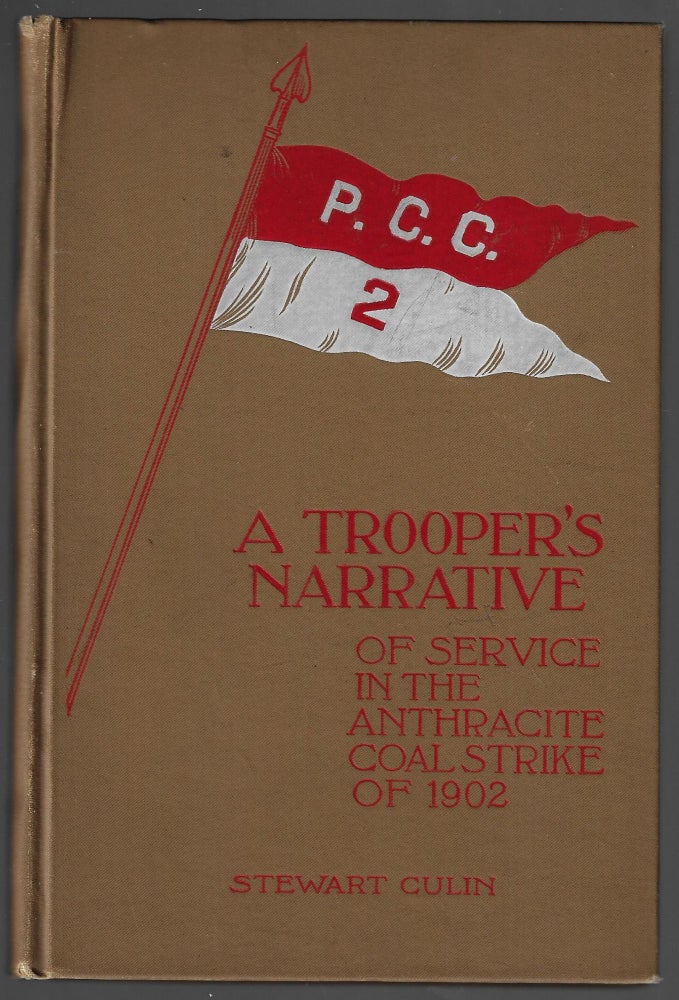
A Trooper's Narrative of Service in the Anthracite Coal Strike, 1902
Philadelphia: George W. Jacobs, [1902].
First Edition. 7.5 x 5 in., 97 pp, with three illustrations from photographs, in original pictorial cloth. Light scuffing to corners and spine ends, pale stain to frontis (not affecting illustration), previous owners' names on front endpapers. Very good. In 1902, the United States depended on anthracite or “hard coal” for domestic heating. Anthracite coal miners in Pennsylvania went on strike on May 12, demanding higher wages, a shorter workday, and recognition of their union, the United Mine Workers of America. As the strike dragged on over several months, public anxiety about fuel shortages led President Roosevelt to take the unprecedented action of stepping in to bring about a resolution. On October 3, 1902, he met with presidents of the mine-owning railroads and union leaders. The owners refused to enter into negotiations with the union, and the conference disbanded without resolving the crisis. Roosevelt then formed a commission to investigate the strike. Secretary of War Elihu Root and banker J. P. Morgan convinced railroad leaders to abide by the findings of the presidentially appointed commission. The union also accepted the commission and, on October 20, voted to end the strike. In March 1903, the anthracite-coal commission recommended increasing miners' pay by ten percent (one half of their demand) and reducing the working day from ten to nine hours. Stewart Culin was a private in the Second Troop, Philadelphia City Cavalry, which was sent in August 1902 to maintain peace and order in Carbon County, where the strike was centered. He later became an important ethnographer, and his considered narrative and analysis of the strike reflects the eye of a keen observer.
Item #20871
Sold


